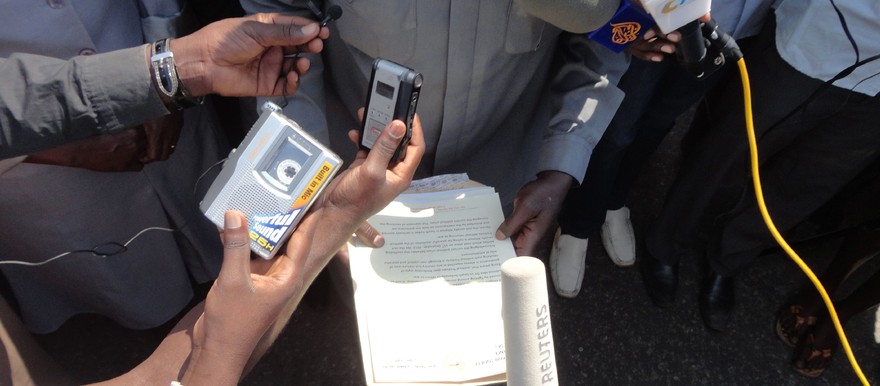The European Union Delegation in South Sudan together with the ambassadors of European nations on Friday voiced support for press freedom in South Sudan.
South Sudan’s government says the press should be regulated and should not cross ‘red lines’ such as criticizing the president.
Last year the National Security Service sought to arrest a journalist who was accused of having reported the president was sick and exhausted, and earlier this year journalists were warned not to publish photographs of the president wiping his brow with a handkerchief, since these were considered affronts to his dignity.
“He is everything in the government of South Sudan. Anybody who tampers with the reputation and dignity of the president, that will not be tolerated,” the government spokesman said in a key speech last year.
The government last Saturday shut down a Catholic radio station, saying it falsely accused the government of instigating violence in Unity State.
European diplomats say the closure of the station is a “particular concern.”
“The EU Delegation and Heads of Mission of EU Member States in South Sudan are concerned by the increasing restrictions on freedom of expression and freedom of the media in South Sudan,” reads a press statement.
The European Union stated, “free flow of information supports transparency and accountability, and encourages inclusive exchange of views, which is especially valuable in South Sudan at this time of conflict.”
According to the statement, the European Union is “firmly opposed to any restrictions on the media’s ability to operate freely.”
The diplomats called upon the South Sudanese government to “end intimidation, harassment or censorship of any kind.”
According to media sources involved in negotiations with the government, the file on Bakhita FM was sent to the president for his decision earlier this week. Yet the government has since then still declined to allow the station to go back on air.
Related coverage:
Timeline: media struggle in South Sudan




